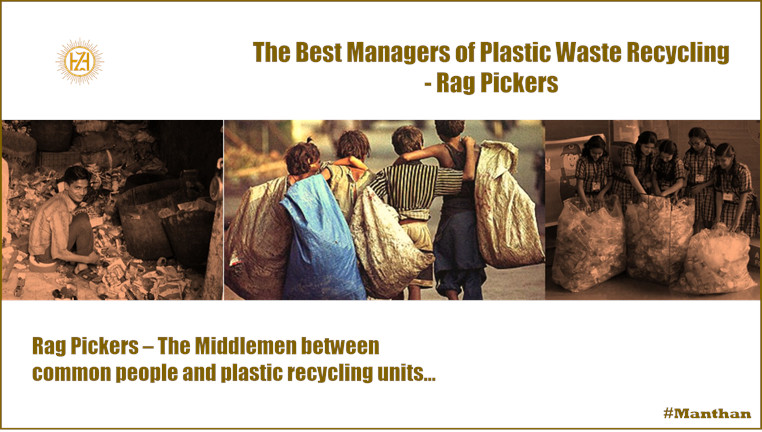
Ragpicker
A person who collects and sells rags.
‘His father still works as a ragpicker, pushing his handcart around the city streets, collecting scraps of discarded cloth that he sells to a contractor.’
Oxford Dictionary
Page Description
Learn about recycling: benefits, processes, and tips for reducing waste and conserving resources. Discover how recycling impacts the environment.
The Environmental Disaster that is Fuelled by Used Clothes and Fast Fashion | Foreign Correspondent
Back to menu IMPORTANT CONTENT
In première gegaan op 12 aug. 2021
The dark side of the world’s fashion addiction. Many of our old clothes, donated
to charities, end up in rotting textile mountains in West Africa. This is a story
about how our waste is creating an environmental disaster.
Have you ever thought about what happens to your old clothes after you drop them off at the
op shop? It might be time to start, because these goodwill gestures are helping to fuel an environmental catastrophe on the other side of the world.
When charities in Australia can’t sell donated clothing, tonnes of it ends up being exported to
countries like Ghana, in West Africa. Ship after ship docks every week with bales from Europe,
the US, China and Australia.
They call them ‘Dead White Man’s Clothes’. Once they arrive in Ghana, they’re taken to the
bustling Kantamanto markets in the capital Accra and from here, they make their way to
villages and towns across the country.
The industry provides jobs for thousands of people, like Asare Asamoah, a successful importer.
He brings in clothes, mainly from the United Kingdom, and if they’re good quality, he can make
a decent living.
But it’s risky business. He has to pay upfront for a bale and never knows whether it’s trash or
treasure. With cheap, fast fashion flooding the world, the quality of the clothes arriving in
Ghana is getting worse and worse.
‘Sometimes you’ve gone and bought something, then you don’t get what you want’, says
Asamoah. ‘Then you lose your money.”
And there’s a dark side to this industry.
Correspondent Linton Besser travels to Ghana to uncover the dirty secret behind the world’s
fashion addiction.
While 60 per cent of imported fashion items are reused and resold, 40 per cent are rubbish,
creating an environmental catastrophe for this poor nation.
With the main dumpsite for textile waste now full, unregulated dumpsites ring the city. These
fetid clothes mountains are often set on fire, filling the skies with acrid smoke.
‘It is totally a disservice to us in this part of the world because we have become sort of the
dumping ground for the textile waste that is produced from Europe, from the Americas”, says
Accra’s waste manager, Solomon Noi.
Emmanuel Ajaab imports used clothes from Australia but he despairs at the poor quality of the
clothes that arrive. From a bale of about 200 garments, he finds only seven he can resell at a
good price.
“In Europe and UK and Australia, America, they think Africa here, sorry to say, we are not like a
human being”, he tells Foreign Correspondent.
The dumped textiles also get swept up in the monsoonal rains and end up choking the city’s
waterways and beaches, posing a danger to fishermen and aquatic life. Liz Ricketts, who runs
an NGO campaigning for awareness of Ghana’s textile waste crisis, lays the blame at the feet
of international fashion houses.
“Waste is a part of the business model of fashion. A lot of brands overproduce by up to 40 per
cent”, says Ricketts.
Noi begs the people who donate their clothes to think twice about where they end up.
“If they come here, like you’ve come, and you see the practicality for yourself, then they will
know that, no, we better take care of these things within our country and not to ship that
problem to cause problems to other people.”
About Foreign Correspondent:
Foreign Correspondent is the prime-time international public affairs program on Australia’s national broadcaster, ABC-TV. We produce half-hour duration in-depth reports for broadcast across the ABC’s television channels and digital platforms. Since 1992, our teams have journeyed to more than 170 countries to report on war, natural calamity and social and political upheaval – through the eyes of the people at the heart of it all.
Contributions may be removed if they violate ABC’s Online Terms of Use http://www.abc.net.au/conditions.htm (Section 3). This is an official Australian Broadcasting Corporation YouTube channel
More example sentences
‘Labourers, ragpickers in the mornings or film poster affixers during the night are the worst hit, not to forget children who are drawn to them and two-wheeler riders.’
‘He began to work as a ragpicker and lived in the railway station.’
‘More often, contemporaries described such youths by their street occupation or activity: newsboys, copper pickers, wood-stealers, ragpickers, swill-gatherers, bootblacks.’
‘The Tapias are ragpickers who earn a living from a nearby municipal dump.’
1 A World of Textile Recycling – UK
14 jun. 2012
2 Where Your Old Clothes Go to Get a New Life: India
28 jun. 2016
3 How Sacred Flowers Are Turned Into Incense Sticks | World Wide Waste
13 feb. 2021
4 The Toxic E-Waste Trade Killing Pakistan’s Poorest
11 jul. 2016
5 Recycling In India
20 mei 2013
6 India Has a Booming Recycling Industry
12 jul. 2016
Imagine streets with no dustbins. Imagine a place where everybody litters wherever they want. Against this chaotic backdrop, India has the highest recycling levels in the world.
India’s ‘informal recycling’ industry has become an important business sector in its own right. Ramshackle sacks of general scrap are piled up in every corner while a group of women busily sort plastic by type and colour. Most of their income is earned laboriously salvaging any recyclables they can sell on. Despite the benefits of recycling, prejudices against ‘informal-pickers’ are yet to be overcome. But very few places in the world have organised as sophisticated and successful a network of ‘recycling cooperatives’. They keep the place clean and provide employment for the poorest.
Shoreditch Films Ltd – Ref. 4883
Journeyman Pictures is your independent source for the world’s most powerful films, exploring the burning issues of today. We represent stories from the world’s top producers, with brand new content coming in all the time. On our channel you’ll find outstanding and controversial journalism covering any global subject you can imagine wanting to know about.
7 Recycling revolutionary shows how you can turn old clothes into kitchen tiles | Australian Story
22 feb. 2021
Scientist Veena Sahajwalla is a recycling superstar with some bold new ideas about how to save waste from landfill.
As Australia’s collective garbage guilt builds alongside the tonnes of plastic piling up in recycling depots, her innovative inventions may offer some exciting new solutions.
Inspired walking the streets of her Mumbai neighbourhood as a child, Veena observed almost everything was reused and “nothing was wasted”.
This can-do attitude shaped her engineering career and sowed the seeds for some ground-breaking ideas, including making steel from car tyres.
Now she’s unveiling her latest invention, a “micro factory” that creates building materials and tiles from dumped clothes and glass.
It’s a revolutionary concept. But will it work outside the lab?
#VeenaSahajwalla #AustralianStory #GreenSteel #GreenCeramics
Read more: https://ab.co/37iHi06
___________________________________________________________
Watch more Australian Story documentaries here: https://bit.ly/36ABH2J
You can also like us on Facebook: www.facebook.com/ABCAustralianStory
Follow us on Twitter: https://twitter.com/AustralianStory
About Australian Story: Putting the “real” back into reality television, Australian Story is an award-winning documentary series with no narrator and no agendas — just authentic stories told entirely in people’s own words. Take 30 minutes to immerse yourself in the life of an extraordinary Australian. They’re sometimes high profile, sometimes controversial, but always compelling. It’s television guaranteed to make you think and feel. New episodes are available every Monday.
14 aug. 2019
9 Garson&Shaw Presents: The Life of Used Clothing
10 Clothes from Canada account for huge waste | CBC Marketplace
19 jan. 2018
11 Tracking your plastic: Exposing recycling myths (Marketplace)
28 sep. 2019
12 The Plastic Problem – A PBS NewsHour Documentary
In première gegaan op 28 nov. 2019
13 Plastic Wars (full film) | FRONTLINE
In première gegaan op 1 apr. 2020
14 Dirty Business: what really happens to your recycling
29 jan. 2018
15 The Recycling Myth Documentary
17 jun. 2019
16 Developing a Waste Management Strategy: Transforming Waste from Problem to Resource
17 Uganda & Pakistan: Second hand clothes markets
15 feb. 2015
18 Senegal’s Second Hand Clothing Boom
8 sep. 2016
“The French throw these clothes away? Really? They throw them away?” Fatou Dia, an employee at one of Senegal’s second-hand sorting centres, is surprised to learn the origin of their stock. The country is experiencing a boom in second-hand trading, and separating unwanted garments enables Fatou to equip her daughter with school supplies. “I’m buying it little by little. I buy one thing, and then the next thing the next month. In this way, I manage”. What is a lifeline to some is a business opportunity to others. “As far as wealth is concerned, human beings are never sated. Because he who does not have his own house is nothing”. For Aliou Diallo, this cheap European clothing was a route to a better life. But in a country whose textile industry is rapidly disappearing from view, are these new imports doing more harm than good?
Wild Angle Productions – Ref. 6092
Journeyman Pictures is your independent source for the world’s most powerful films, exploring the burning issues of today. We represent stories from the world’s top producers, with brand new content coming in all the time. On our channel you’ll find outstanding and controversial journalism covering any global subject you can imagine wanting to know about.
TEXTILE MOUNTAIN – THE HIDDEN BURDEN OF OUR FASHION WASTE
Back to menu IMPORTANT CONTENT
29 mei 2020
Filmed & edited by Fellipe Lopes
Researched and produced by Caitriona Rogerson
On site research by Lindi Campbell Clause Closing music:
‘Mazingira Yetu’ by Larry Dwayne Ft Shamir
Produced for https://makeeuropesustainableforall.org/

 Excellent
Excellent 
19 Scientist Resurrects Dead Chicken
22 apr. 2020
Aaron Hahn
1 jaar geleden